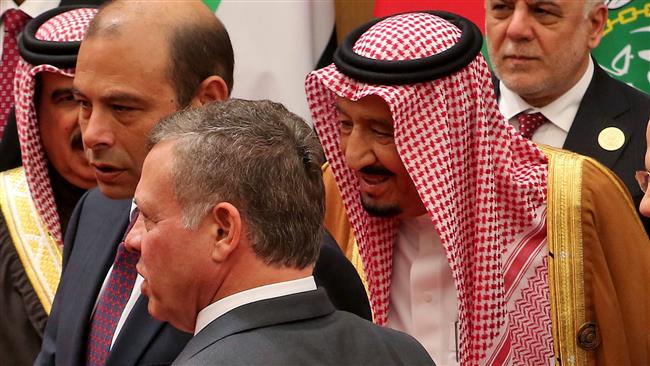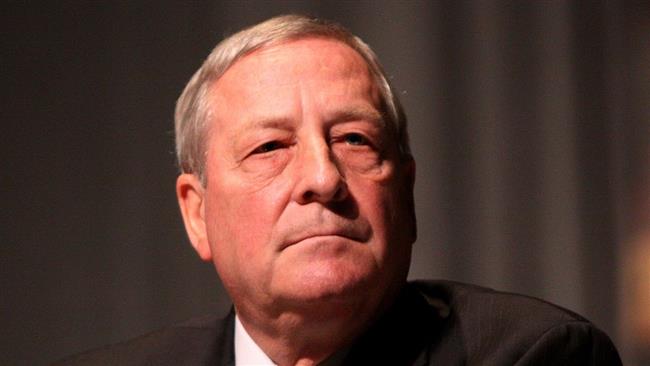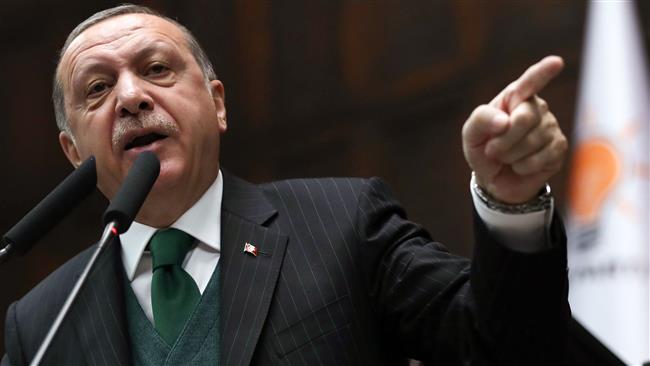Saudi plan to befriend Israel to stir up turmoil in Jordan: Official
Jordanian officials are concerned that Saudi Arabia’s plan to normalize ties with Israel could endanger the stability of Jordan, a senior official close to the Royal Court in Amman says.
On Thursday, the Middle East Eye news portal cited the Jordanian official, who spoke on condition of anonymity, as saying that the alarm bells went off in Amman following recent leaks suggesting that Saudi Arabia plans to surrender the Palestinian right of return in exchange for putting East Jerusalem al-Quds under international sovereignty as part of a Saudi-Israel peace deal.
The official noted that such a deal between Riyadh and Tel Aviv would compromise the special status of Jordan as the custodian of the Haram al-Sharif in East Jerusalem al-Quds.
The source pointed to the demography of the population in Jordan, 65 percent of which comprises Palestinians, adding, “Half the population of Jordan are Palestinians and if there is official talk in Riyadh about ending the right of return, this will cause turmoil within the kingdom.”
Although the Palestinians in Jordan have Jordanian citizenship and access to medical care, they are under-represented in the parliament and have insignificant presence in the army and security services.
The official said that any attempt to grant more rights to the Palestinians in Jordan would trigger a backlash among the Jordanian population, noting that any deal concerning the status of the Palestinian refugees would have to include a compensation package for Jordan.

On Tuesday, Lebanon’s al-Akhbar daily released a secret, undated letter from Saudi Foreign Minister Adel al-Jubeir to Crown Prince Mohammed bin Salman that puts forward a plan to normalize ties with Israel despite the strong opposition among the Arabs to such rapprochement.
Read more:
The letter also set out a number of conditions for normalization of relations with Israel, including achieving the same military level with Israel in terms of nuclear weapons, resettling the Palestinian refugees in Jordan instead of returning them to the occupied territories and focusing on Iran as the common enemy of Saudi Arabia and Israel.
The official accused Mohammed bin Salman of treating Jordan with contempt, saying, “He deals with Jordanians and the Palestinian Authority as if they are the servants and he is the master and we have to follow what he does. He neither consults nor listens to us.”
“He (MbS) is concerned about the normalization of the Saudi relationship with Israel and he does not care about anything else. He needs a fig leaf to start off this normalization,” he said.
According to a separate Western source close to Saudi princes, normalization of ties with Israel was a key factor behind the recent purge of dozens of Saudi princes and elite under the pretext of fighting corruption in the kingdom.
The source said that Mohammed bin Salman arrested the people who were acting as “gatekeepers for Saudi funding” going to Israel, in an attempt to keep a monopoly of contacts with Tel Aviv for himself.
The source dismissed Riyadh’s claims of launching an anti-corruption campaign, saying, “The Saudi family do not rule Saudi Arabia. They own it. That is their view. They created the country. They own it, and therefore they cannot be corrupt.”
The Jordanian Royal Court official who spoke to the Middle East Eye also noted that Amman is concerned about the ramifications of “reckless” Saudi policies to pressure Jordan and other countries to join an anti-Iran front.
Meanwhile, Jordan has been losing its revenues as a result of Saudi Arabia’s policies, including the regional boycott of Qatar and the reopening of Saudi-Iraqi border crossing of Arar after 27 years which has reduced the trade from Iraq that used to pass through Jordan, the official pointed out.
Amman is currently enraged over the fact that Saudi Arabia has reneged on its previous promise to provide aid to Jordan to compensate for the loss of its revenues, he said.
The official also noted that Jordan was “not well briefed” about Saudi Arabia’s plan to build the high-tech mega city of NEOM across the kingdom’s borders into Jordan and Egypt, raising the suspicion that the primary beneficiary of the project will not be Jordan or Egypt, but Israel.

In recent years, there have been numerous reports of behind-the-scene contacts between Riyadh and Tel Aviv, despite the fact that Saudi Arabia, along with other Arab League states, does not formally recognize the occupying entity.
In September, Israeli and Arab media reported that a Saudi prince had traveled to Israel and had held consultations with senior Israeli officials over “regional peace.”
A month later, an Israeli official, who was speaking on condition of anonymity, told AFP Arabic that Mohammed bin Salman had in fact been the prince who visited Israel in September.
Back in June, The Times cited unnamed Arab and American sources as saying that Tel Aviv and Riyadh were in clandestine talks to establish official economic ties for the first time since the entity was created.
Additionally, Israel’s Transportation and Intelligence Minister Yisrael Katz called on Saudi King Salman bin Abdulaziz Al Saud to invite Israeli Prime Minister Netanyahu to Riyadh to establish full diplomatic relations.
Conflicting justifications and soaring costs cloud Trump’s expanding war with Iran: Report
No imminent threat, just Israeli agenda: US senators push back on war on Iran
Handala hacking group breaches Israel’s so-called national security institute
IRGC Ground Force launches 3 major operations in response to Israeli-US aggression
'Powerful strike': IRGC hits US destroyer with ballistic, strategic cruise missiles in Indian Ocean
IRGC: 16th wave of retaliation hit heart of occupied territories; enemy casualties stand at 680
We avenge the innocent until our last breath: Iran's parl. speaker
170 students, teachers martyred in ‘deliberate’ strikes on Iranian schools: Minister













 This makes it easy to access the Press TV website
This makes it easy to access the Press TV website